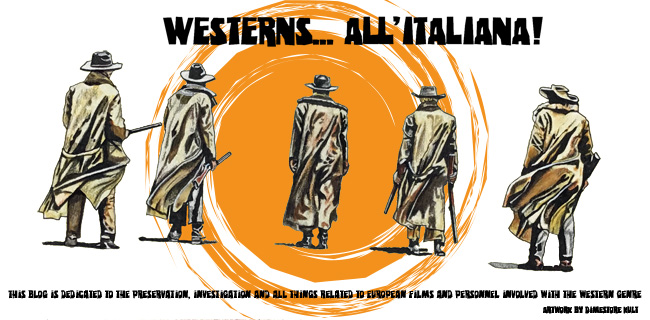The Fiscal Times
By Josh Herr
March 31, 2017
Stephen King has been a constant figure in pop culture
for the better part of five decades. From his 1976 debut novel, Carrie, and its
subsequent classic horror film through the recent Hulu time-travel drama
11/22/63, King has been a seemingly constant presence at the bookstand, in the
multiplex and on television. The period from 1983 to 2001 saw multiple
adaptations of his work appear on screen every single year.
That pace has since slowed — the past decade has seen
only five films, including a largely unnecessary remake of Carrie — but two new
adaptations are now approaching theatrical release, and even if you can’t quite
call it a comeback, the author is clearly enjoying another cultural moment. As
the reins of entertainment industry production have shifted from the boomers
who enjoyed King’s work as trashy airport reads to the Xers and older
Millennials who snuck those novels out of their parent’s bookshelves, the
author’s work and influence (lookin’ at you, Stranger Things) are everywhere,
or will be soon.
The adaptation of cult classic The Dark Tower, perhaps
King’s strangest work — an amalgam of Spaghetti Western and Tolkien-esque
fantasy — will arrive this July starring Idris Elba and Matthew McConaughey.
Then a second pass at It (following an early ‘90s television miniseries which
mostly missed, other than Tim Curry’s chilling turn as Pennywise) is scheduled
for September, just in time for Halloween costumes. The mammoth novel (it’s
1,000 of the most engaging pages you will ever read, followed by a coke-fueled
disaster of an ending) is being split into two films, one for each of the time
periods in which the story takes place. Fans are desperately hoping for a film
that fixes both the miniseries and the author’s own missteps. The trailer is
certainly promising:
This time, though, King’s popular presence comes with a
healthy dose of the critical respect that had eluded the author for much of his
early career. The sentiment surrounding the two new movies is less, “Meh,
another Stephen King movie” and more legitimate excitement and curiosity about
a how a new generation will handle these works, striped of ‘80s horror
conventions and literary snobbery.
It’s worth asking why it took so long for King to get
such respect in the first place. Audiences sure love his work. He is No. 20 on
the list of bestselling authors of all time, generating over $350 million in
sales. (Agatha Christie is No. 1, if you’re curious). No other living author
has more adaptations on the AFI 100 Greatest Films list. Movies based on his
works have pulled in over a billion dollars in box office. Chances are, you
know what King looks like, too…and how many authors can you say that about?
That commercial success was actually part of the problem,
at least in the eyes of some critics — along with the facts that King is still
alive (and long may that continue; he will be 70 in September) and has always
been ridiculously prolific. And when I say ridiculously prolific, I mean
ridiculously, absurdly prolific. So far, King has written 56 published novels,
11 short story collections and five works of nonfiction. This bibliography is
in addition to various screenplays, television episodes and magazine articles.
He even wrote a musical with John Mellencamp and T-Bone Burnett (no, really).
His IMDB page has 232 writer credits. To be fair, that number is inflated a bit
by his “Dollar Baby” program, in which he allowed film students to adapt one of
his short stories for the low price of $1.
The multiple films, in particular, have undermined King’s
critical legacy as an author. While some of them are bona fide classics of
cinema, many of them are very, very bad. Even if you remove the student films,
the lackluster slogs (Christine, Silver Bullet) and out-and-out dumpster fires
(The Lawnmower Man or Maximum Overdrive, which King himself famously directed)
outweigh the quality. King was, for many years, considered a talented conveyor
of entertaining crap.
The simple passage of time has allowed the gems in King’s
oeuvre to stand out, while the dreck recedes into the distance. What endures
from his filmography are several masterpieces of horror (the original Carrie
and The Shinning, regardless of the author’s own opinion of it), suspense
(Misery), perhaps the greatest nostalgia film of all time (Stand By Me) and one
of the most beloved films of all time in any genre (The Shawshank Redemption —
though, seriously, IMDBers, it’s not better than The Godfather).
Those last two King films illustrate why, over time, he
has become such a cultural touchstone to those who read him as teens. Though he
is often caricatured as purveyor of nightmares, those who’ve actually read his
novels will recognize that far more time is spent on the depiction of small
town life, the comradery of (usually male) pre-teens and the efforts to repair
broken families than on vampires, ghosts and killer dogs. Viewers who saw King
reflected in Stranger Things were likely responding to the relationships
between its fifth-grade protagonists more than the creepiness of The Upside
Down. In fact, while King had two television minseries in the past two years
(11/22/63 and Under the Dome), it is the Netflix series and FX’s Legion (in
which the main character frequently flashes back to a King-esque childhood,
equal parts wonder and dread), where his name is most often cited.
Arguably, King has become as big of a touchstone for
modern storytelling as Steven Spielberg (the two men are the same age. It also
helps that the author has emerged as a bit of an elder statesmen in recent
years. Following a near fatal and life-changing auto accident in 1999 (King was
a pedestrian), he reemerged a changed man. He openly discussed his earlier challenges
with drug and alcohol addiction. He became actively involved in a variety of
Maine charities, and national ones. He has been an outspoken proponent of
liberal politics, and a shockingly engaging and entertaining figure on Twitter.
King’s legacy may never be appropriately appreciated in
his lifetime, but it’s encouraging to see the re-evaluation is already under
way.
YouTube link: https://www.youtube.com/watch?v=b6T2UhJLSK4











No comments:
Post a Comment